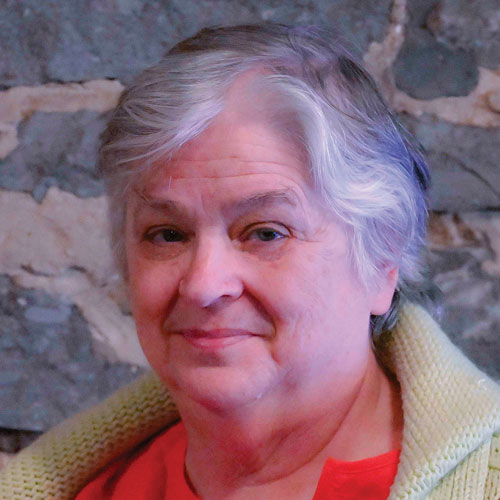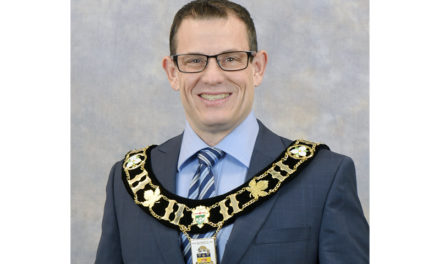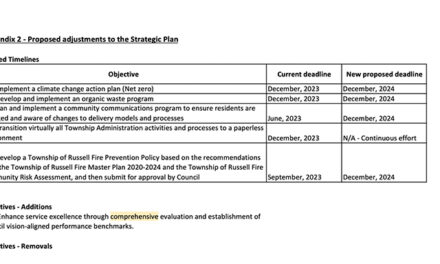BERWICK – South Nation Conservation board of directors announced in a press release on Oct. 26 that Carl Bickerdike had been appointed as the new SNC chief administrative officer effective Oct. 24.
“It’s an honour to be selected as the new chief administrative officer,” said Bickerdike. “We have an extremely dedicated and professional staff, and I am excited to get to work with them, our board, and our partners, to continue the valuable work of SNC.”
Bickerdike graduated from Tufts University in Medford Massachusetts with a Master of Arts in Urban and Environmental Policy and Planning. “Prior to working with the SNC he worked as a program director for the YMCA in Massachusetts and Quebec, leading outdoor and environmental programs.”
Having worked for SNC since 2014, Bickerdike has held various roles within the agency, including project lead to managing director, of the organization and has been the acting general manager since September after former CAO Angela Coleman left SNC to lead Conservation Ontario. As CAO, Bickerdike will serve as a liaison and senior advisor to the board of directors as well as providing strategic direction and guidance to the just under 50 staff members at SNC.
“Carl has a deep knowledge of SNC’s operations and brings a wide range of experience to the position of chief administrative officer,” commented SNC board of directors’ chair Pierre Leroux. Leroux continued, “[Bickerdike] is an effective leader and is committed to leading the diverse staff team at SNC, as we work collaboratively with our community partners, to conserve and improve our local environment.”
In a recent interview, Bickerdike explained the SNC is currently in a period of transition, “because of all recent changes, both passed and proposed, to the Conservation Authorities Act” before continuing how he feels: “my appointment as a long serving internal candidate was partly to minimize internal change when there is a lot of focus on externally.”
When asked about challenges facing conservation authorities in Ontario, he mentioned Bill 23, which received second reading in the provincial legislature recently. Bickerdike explained how the Ontario provincial government had published a “Housing Affordability Task Force Report” that contained “55 recommendations to increase house supply in Ontario, commenting “CAs were not named within the report, demonstrating they are already proactively working with the development industry and all levels of government to ensure safe and sustainable development can occur, while balancing the needs of people and the environment, the economy and ecology.”
Bickerdike continued, he will be working with the SNC board of directors and staff “to respond to the proposed changes to conservation authorities under Bill 23, the More Homes Built Faster Act.” He explained, if passed as it is currently written “municipalities will not be able to work with CAs to review the environmental impacts of development. This could have significant impacts on the protection of forest and wetland areas for future generations, stated Bickerdike before adding, “Bill 23 is a departure from recent amendments to the Conservation Authorities Act that directed CAs to focus their work on natural hazard related programs but allows municipalities to choose whether CAs provide technical advice based on their local needs and deliver programs in their municipalities through funding agreements.”
He commented how there is a strong working relationship between the SNC and the municipalities they serve. He added, “We enable smaller municipalities to have access to expertise they could not have in-house. Our professional staff also examine development with a watershed-based approach that minimizes impacts on neighbouring municipalities and protects people and property from flooding. That is the whole reason conservation authorities were formed.”
Currently, conservation authorities in Ontario provide many services to municipalities including providing input on municipal development, mapping flood plains and manage protection of municipal water sources. He explained the SNC owns and manages over 1,200 acres of forest seeking to protect the wildlife that live there.
More information on South Nation Conservation and the role they play in the South Nation Watershed is available on their social media pages or by contacting SNC directly.

Carolyn Thompson Goddard, grew up in Chesterville and attended North Dundas District High School. After completing her BA in Political Science at Carleton University she has worked as a medical secretary and library technician. In 2020 she graduated from Algonquin College with a diploma in Journalism and has been a reporter and column writer for The Chesterville Record for over 10 years.









